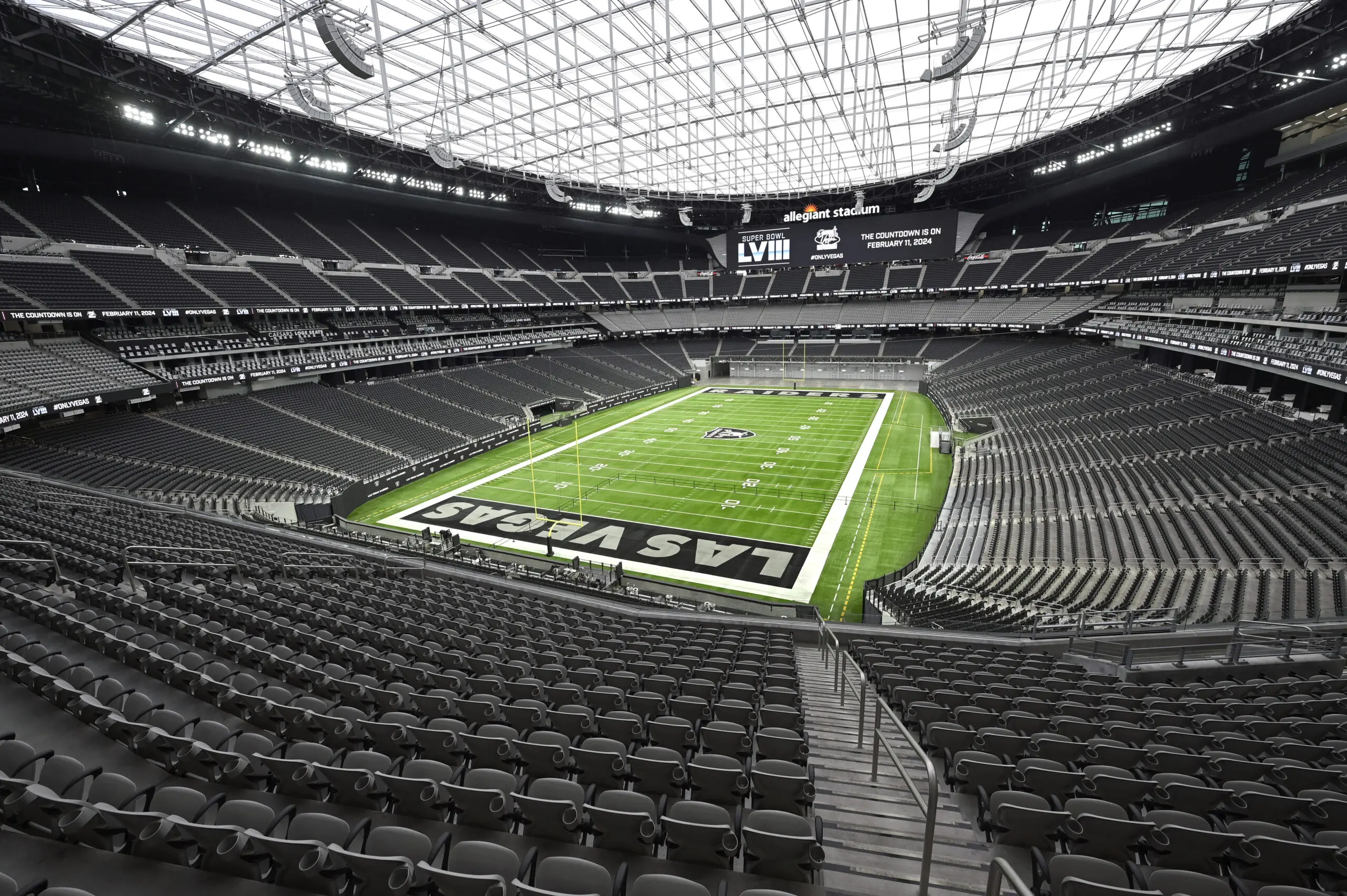You could be forgiven for questioning whether the NRL's desire to play games in the United States of America is really to attract a new audience to the sport of rugby league.
Earlier this week, the NRL confirmed that not two, but rather, four games, would be heading States-side to kick-off the 2024 NRL season.
In what is the second of a five-year partnership for the NRL to open the year in Las Vegas with an NRL double-header, the slate for 2025 has increaded to four games, with an English Super League clash between the Wigan Warriors and Warrington Wolves, as well as a women's Test between the Jillaroos and England, added to the program.
If you believe rumours on the grape vine, the Super League game was booked by the clubs through consultation with the NRL and Australian Rugby League Commission without overisght from the Super League themselves.
Given a pair of half-hour breaks between two of the four games, it means that from the opening kick-off to the final whistle of the Penrith Panthers' clash against the Cronulla Sharks, it will be roughly nine hours from start to finish.
While there is little doubt that a Super League game, as well as a women's Test, is a great addition to the Las Vegas experiment and brings the potential for more interest from fans both in Australia and in England, the bottom line is that playing all four games on the same day has created a program that will take longer to play than a day of Test cricket.
The issue here is that the games in Las Vegas have been billed by the NRL as a way to grow the game into the United States of America.
That, of course, was always going to be a difficult question to answer. The first experiment in March this year as the South Sydney Rabbitohs, Sydney Roosters, Manly Sea Eagles and Brisbane Broncos opened the 2024 campaign in the country proved it.
While crowd numbers were deemed to be acceptable, it was clear that there wasn't enough domestic interest, either by way of ticket sales or TV numbers, which dropped off to an alarming number, particularly during the second game.
It was also clear that, even with only two games and a four-hour program at the Allegiant Stadium, that there was already too much content for fans to stomach, with crowd sizes seeming to go up and down throughout the course of the two games.
While the NRL will point to Magic Round in Brisbane, where triple-headers on the Saturday and Sunday are common place, there is a real issue here in that attracting new fans and then asking them to sit through nine hours of a sport they aren't familiar with simply isn't going to work.
There is also the issue of the two NRL games - which are the main draw card - being split by the Jillaroos fixture. Again, the Jillaroos and England being included on the program is an excellent step in the right direction for growing the women's game from the NRL, but there was no need to have all four games played on the same day.
There is a real risk that NRL fans will step out for the women's game in the middle, and a real risk that no one outside of those travelling from England and a handful of NRL fans will attend the Super League game at the start.
There will also be a portion of fans who deem the Raiders-Warriors game - which by the way opens the NRL season at 11am (AEST) on a Sunday morning Australian time - as far too early to bother attending.
The bottom line is that four games in a single day is too much to stomach for fans either travelling or watching from home, and whether rusted on or a new audience.
What should have been done is a split up of the games.
How that happens could have been disputed, but the Super League and Women's game on the Friday night in Las Vegas, with the two NRL games the next day, seems like it could have been a solid way to do things.
Allow fans travelling to get two days of action, local fans who might be interested to have two options for attendance, and save everybody from burn out.
The Las Vegas experiment, if you listen to Australian Rugby League Commission chairman Peter V'Landys and NRL CEO Andrew Abdo, is here to stay, but four games is an enormous risk.
If it backfires, it could seriously blow up for the NRL, while jepoardising the number one point of the mission in the first place, even though some would argue it's simply for the American betting market.








